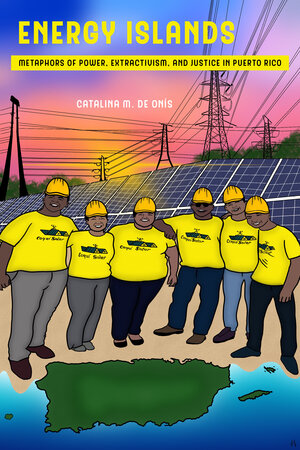September 20th marks the four-year anniversary since Hurricane María made landfall in Puerto Rico and other regions of the Caribbean archipelago. The most impacted communities continue in their ongoing recovery and mutual support efforts, while confronting the resilience of colonialism, racial capitalism, environmental racism, global heating, and regional climate chaos. These communities and individuals are reminded daily that the state has little concern for their lives that are marked as exploitable and expendable.
UC Press author Catalina de Onís’s book Energy Islands: Metaphors of Power, Extractivism, and Justice in Puerto Rico examines these injustices and emphasizes that Hurricanes Irma and María and other severe storms are not isolated “events.” Rather, they are life and death manifestations of the damage done by systems and structures that disproportionately target and threaten Black, Indigenous, and other People of Color and low-income and low-wealth communities.
Throughout Earth, so many people continue to face these cruelties, exemplified by Hurricane Ida this summer and other climate-related disasters. Urgent work remains to dismantle the discourses, narratives, and tropes that constitute and uphold these lethal structures and systems that fuel the increasing severity and frequency of hurricanes and other climate-related disasters. To continue in struggles of resistance and refusal, Energy Islands documents how communities in Puerto Rico’s southeastern Jobos Bay region are organizing and creating alternative futures that enact self-determined environmental, climate, and energy justice. In doing so, they strive to transform power in its many forms.


